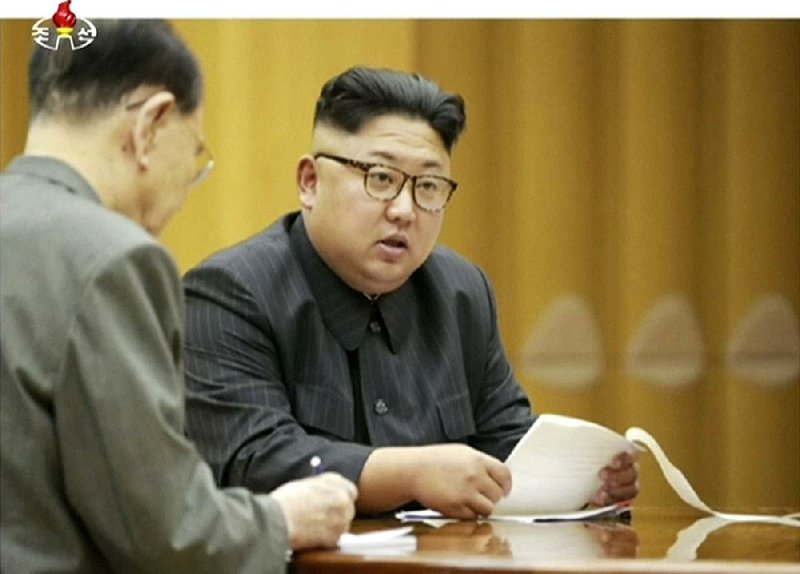TOKYO -- Japan's public broadcaster mistakenly sent an alert Tuesday warning residents of a North Korean missile launch and urging them to seek immediate shelter, then minutes later corrected it, days after a similar error in Hawaii.
NHK television issued the message on its Internet and mobile news sites as well as on Twitter, saying North Korea appeared to have fired a missile at Japan. It said the government was telling people to evacuate and take shelter.
"North Korea appears to have fired a missile," NHK said, adding that a government warning had been issued. "The government: Seek shelter inside buildings and basements."
The false alarm came just days after Hawaii's Emergency Management Agency sent a mistaken warning of a North Korean missile attack to mobile phones across the state, triggering panic.
Makoto Sasaki, a spokesman for NHK, apologized, saying that "staff had mistakenly operated the equipment to deliver news alerts over the Internet." NHK deleted the tweet and text warning after several minutes, issued a correction and apologized several times on air and on other formats.
"The flash was a mistake," NHK said. "We are very sorry."
Tension has grown in Japan over North Korean missile tests as they have flown closer to Japanese coasts. NHK and other Japanese media generally issue alerts for each missile test, and the government has issued emergency notices when the missiles flew over Japan.
Japan is also stepping up its missile intercepting capabilities and conducting missile drills across the country in which residents, including schoolchildren and elderly people, rush to community centers, cover their heads and duck down to the floor. A major drill is planned in downtown Tokyo next week.
Unlike the mistaken Hawaii warning, the NHK alert did not contain the statement, "This is not a drill." The mistake sowed panic; a missile launched from North Korea would land in Honolulu in about 30 minutes, giving people little time to prepare.
NHK was able to correct its error in a few minutes, far faster than the nearly 40 minutes that lapsed before the Hawaii alert was withdrawn.
After NHK's announcement about making an error, Twitter users expressed their frustration and disbelief.
"I thought I would die," one Twitter user wrote in Japanese, followed by a "LOL." Another, using the name Michiya Hayashi, wrote: "Following Hawaii, NHK did it too. Don't become the boy who cried wolf."
The Hawaii agency has now changed its protocols to require that two people send an alert and to make it easier to cancel a false alarm.
On Tuesday, Homeland Security Secretary Kirstjen Nielsen said the agency will be working with states to follow proper protocols when issuing safety alerts and can quickly retract incorrect alerts like Hawaii's.
U.S. Sen Mazie Hirono, D-Hawaii, said it's clear that human error initiated the false alert. But she said she worries that system failures allowed it to go uncorrected for too long.
"This had the potential for being totally catastrophic," Hirono said.
Nielsen told a Senate panel Tuesday that the department had been unaware that Hawaii officials did not have a mechanism in place to address false alarms and retract them.
She also said the Department of Homeland Security is examining how the U.S. government can quickly verify the accuracy of alerts with agencies such as the Department of Defense.
Hawaii Gov. David Ige on Monday appointed state Army National Guard Brig. Gen. Kenneth Hara to oversee a review of Hawaii's emergency management process.
If the citizens of Japan and Hawaii were only starting to shake off any sense of unease, North Korea waded into the debate Tuesday, with its state-run newspaper describing the false alarm in Hawaii as a "tragicomedy."
"The entire island was thrown into an utter chaos at the news that a ballistic missile was coming in," said the newspaper, Rodong Sinmun.
Information for this article was contributed by Mari Yamaguchi, Jennifer Sinco Kelleher and Brian Melley of The Associated Press and by Kimiko de Freytas-Tamura of The New York Times.
A Section on 01/17/2018
